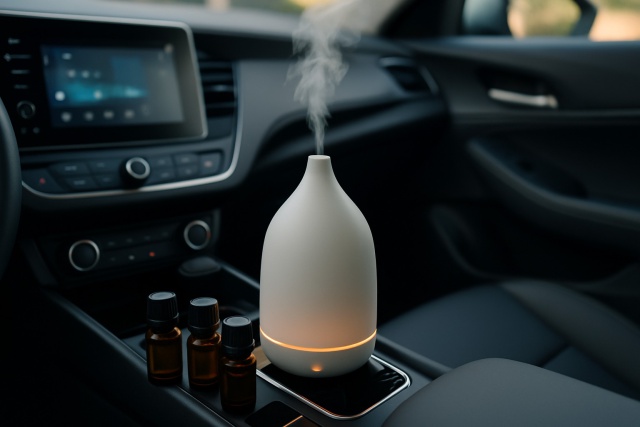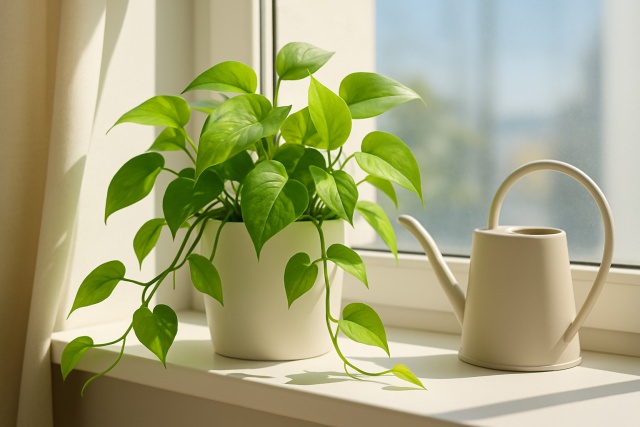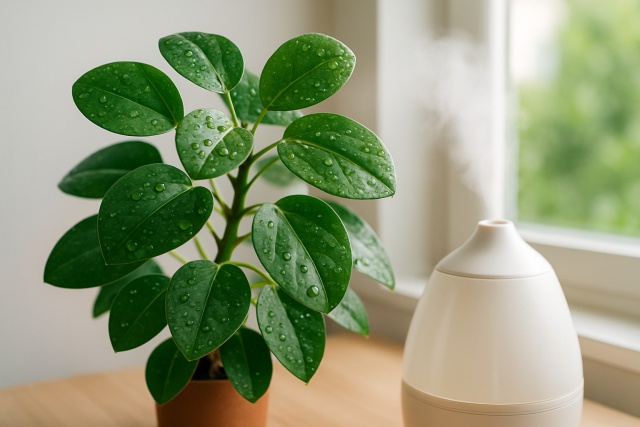How to Remove Water Stains from Granite Using Natural Methods
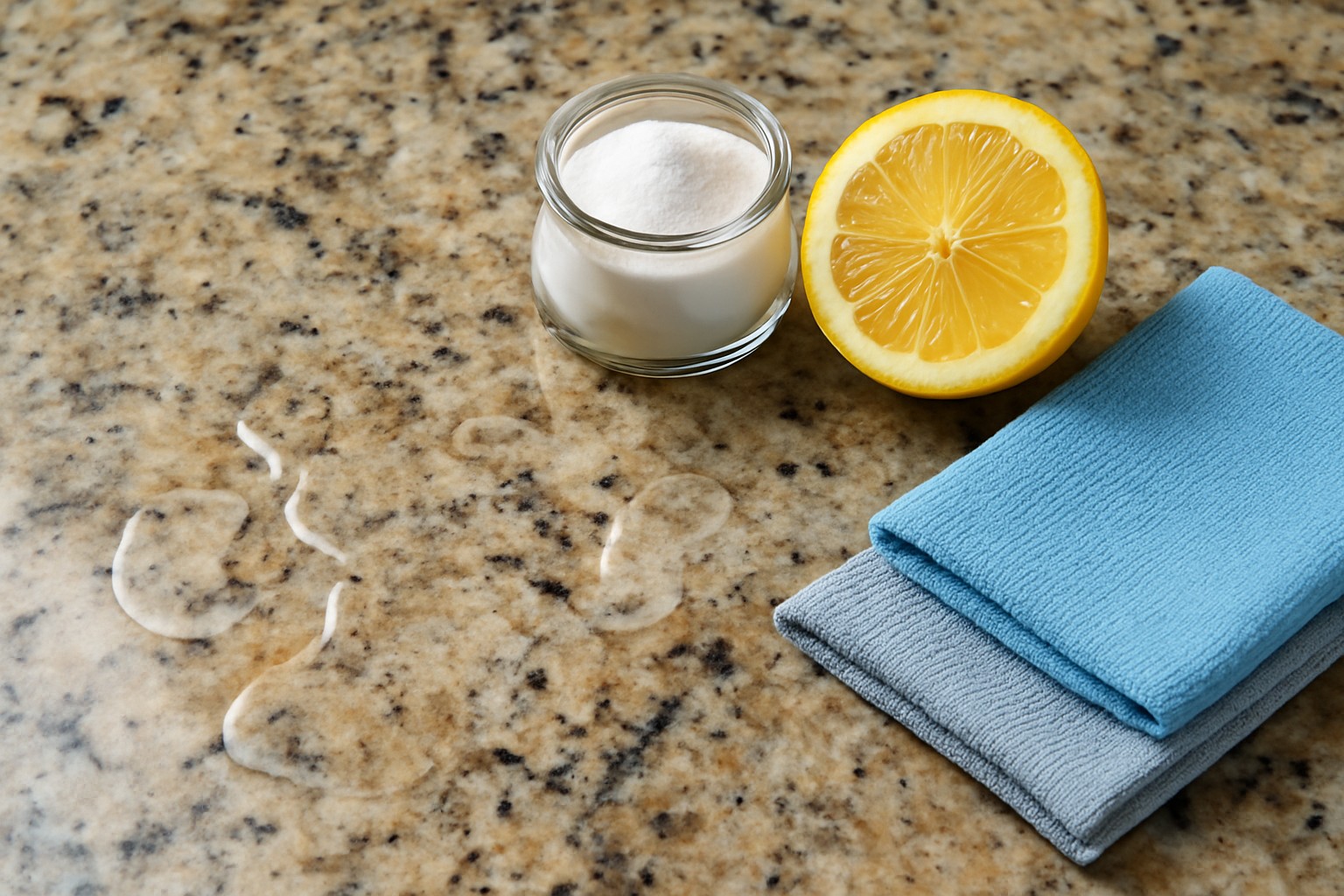
Water stains on granite surfaces are pesky spots or rings that appear when minerals are left behind after water dries, and learning how to remove water stains from granite is essential. You’ll often spot these stubborn blemishes on kitchen countertops or bathroom vanities and other granite areas that get moisture. Granite is a natural porous stone. Using the wrong cleaning methods or harsh chemicals can damage its finish.
What You Should Know About Water Stains on Granite (and Why They’re a Bit Tricky)
Granite is a naturally porous stone meaning those tiny pores soak up water carrying minerals like calcium and magnesium. Once the water evaporates it leaves those minerals behind which can cause stains or cloudy spots that show up right on the surface.
Why It Just Makes Sense to Reach for Natural Methods When Tackling Water Stains on Granite
Natural cleaning methods offer a gentle yet surprisingly effective way to banish water stains without putting your surfaces at risk. Unlike those harsh chemical cleaners that often strip away sealants and leave granite looking tired and dull, these natural remedies help keep the stone’s natural beauty intact while staying safe enough for daily use.
- Helps keep your granite surfaces looking sharp by avoiding harsh chemicals that dull or etch them over time
- Non-toxic and safe to use around kids and pets so you can breathe easier
- Made from ingredients you can find in your kitchen or local store without effort
- An eco-friendly, sustainable cleaner that helps cut down chemical waste and feels good for the planet
- A budget-friendly option that uses common household items instead of pricey commercial cleaners, saving you money
Key Tools and Ingredients You’ll Actually Need (No More, No Less)
- Soft microfiber cloths that clean gently without leaving a scratch—perfect for those who worry about ruining their surfaces
- Baking soda, a trusty sidekick with just enough grit to tackle stains without going overboard
- Diluted white vinegar needs a careful hand because of its tangy acidity but works wonders when used right
- Hydrogen peroxide is a natural bleaching agent that steps up for stubborn stains you can’t shake off
- Fresh lemon juice brings a zesty punch of natural acidity and antibacterial goodness to the party
- Olive oil is a little luxury that nourishes and adds a subtle shine to your granite making it look like new again
- Spray bottle for an even controlled spritz of your cleaning concoctions—no drowning your surfaces here
- Warm water is the unsung hero for rinsing and gently diluting all those ingredients without fuss
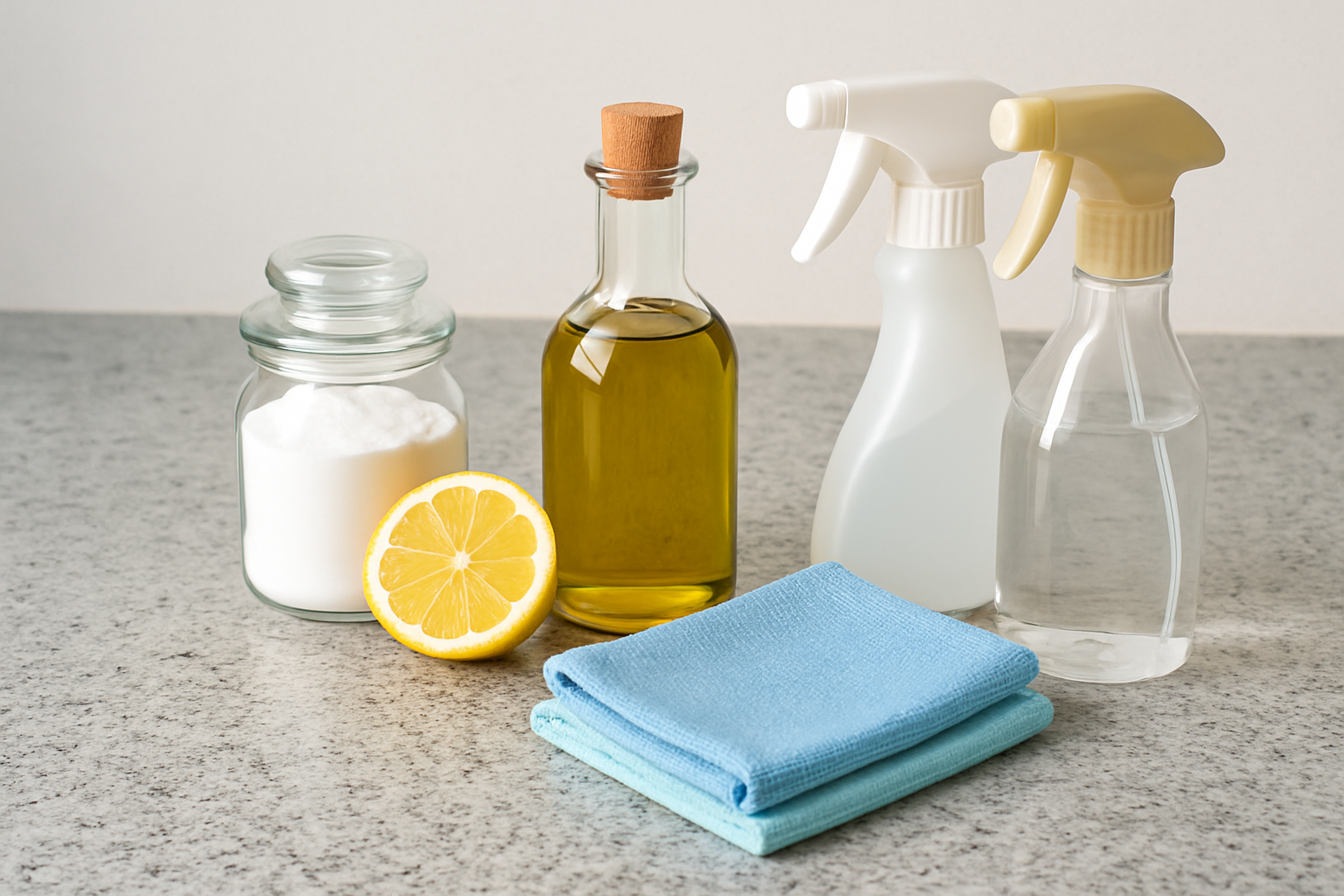
Essential natural tools and ingredients used for removing water stains from granite
How to Remove Water Stains from Granite Naturally
- Figure out what kind of water stain you’re dealing with and how bad it really is. This way, you can pick the right cleaning method without any guesswork.
- Mix up some baking soda and water until you get a nice, thick paste that’s easy to spread around.
- Spread that paste evenly over the stained spot, making sure it’s fully covered with no hiding spots for those pesky stains.
- Let it sit for about 15 to 20 minutes so the minerals have time to loosen their grip on your granite.
- Using a soft microfiber cloth, gently scrub the paste in circular motions. This step is key to keeping your surface scratch-free.
- Rinse the area thoroughly with warm water to wash away every last bit of paste.
- Dry the surface completely with a clean towel to help avoid any new water marks from sneaking in.
- If the stubborn stain refuses to quit, carefully dab on some diluted hydrogen peroxide or lemon juice. Let it sit for 5 to 10 minutes, then rinse and dry as before.
- Finally, give your granite some extra care by rubbing a bit of olive oil onto a cloth and working it in. This will bring back a lovely shine and help protect against future stains.
When applying baking soda paste, try to keep it nicely moist but not swimming in water. Too much liquid will just seep into the granite's pores, which is the last thing you want. Handle hydrogen peroxide gently and always dilute it with water to reduce the risk of bleaching your precious surface. As for lemon juice, think of it as a quick splash of sunshine. Leave it on briefly and rinse it off thoroughly to prevent the acidity from dulling your stone's natural shine. Olive oil can be a surprisingly good natural conditioner, but don’t use it on wet granite because it tends to trap dirt underneath.
Other Natural Ways to Tackle Those Pesky Water Stains
- A gentle vinegar and water mix can work wonders on light stains but you’ve got to handle it with care and rinse it off straightaway to avoid unpleasant etching.
- When it comes to stubborn mineral stains a paste from hydrogen peroxide and baking soda usually does the job nicely.
- Mixing lemon juice with olive oil is a natural way to polish spots and bring back lost surface shine.
- Sprinkling cornstarch as a dry powder is a handy trick to soak up moisture and lift light mineral deposits.
Acidic substances like vinegar and lemon can etch granite if they stay too long on the surface. Always dilute acids and test them on a small out-of-sight spot first. Use them carefully, rinse thoroughly afterward, and try to avoid using acidic cleaners often.
Tried-and-True Tips to Prevent Water Stains on Granite
- Wipe up spills as soon as they happen to prevent minerals from settling in and leaving those pesky stains.
- Always use coasters and placemats under glasses and dishes, and your granite will thank you by staying ring-free.
- Remember to apply granite sealant regularly as recommended to keep moisture from sneaking in.
- Avoid harsh chemical cleaners and abrasive scrubbers because they might seem tough but are actually hard on your sealant and stone.
- Stick to a consistent cleaning routine with gentle, pH-neutral cleaners since that’s the secret to keeping your granite looking its best over time.
Sealing granite creates a protective barrier that effectively reduces its porosity, helping to keep water and stains from sneaking into the stone. When applied properly, sealing not only boosts stain resistance but also extends the surface’s lifespan, preserves that lovely glossy finish, and ultimately reduces the need to learn how to remove water stains from granite.

